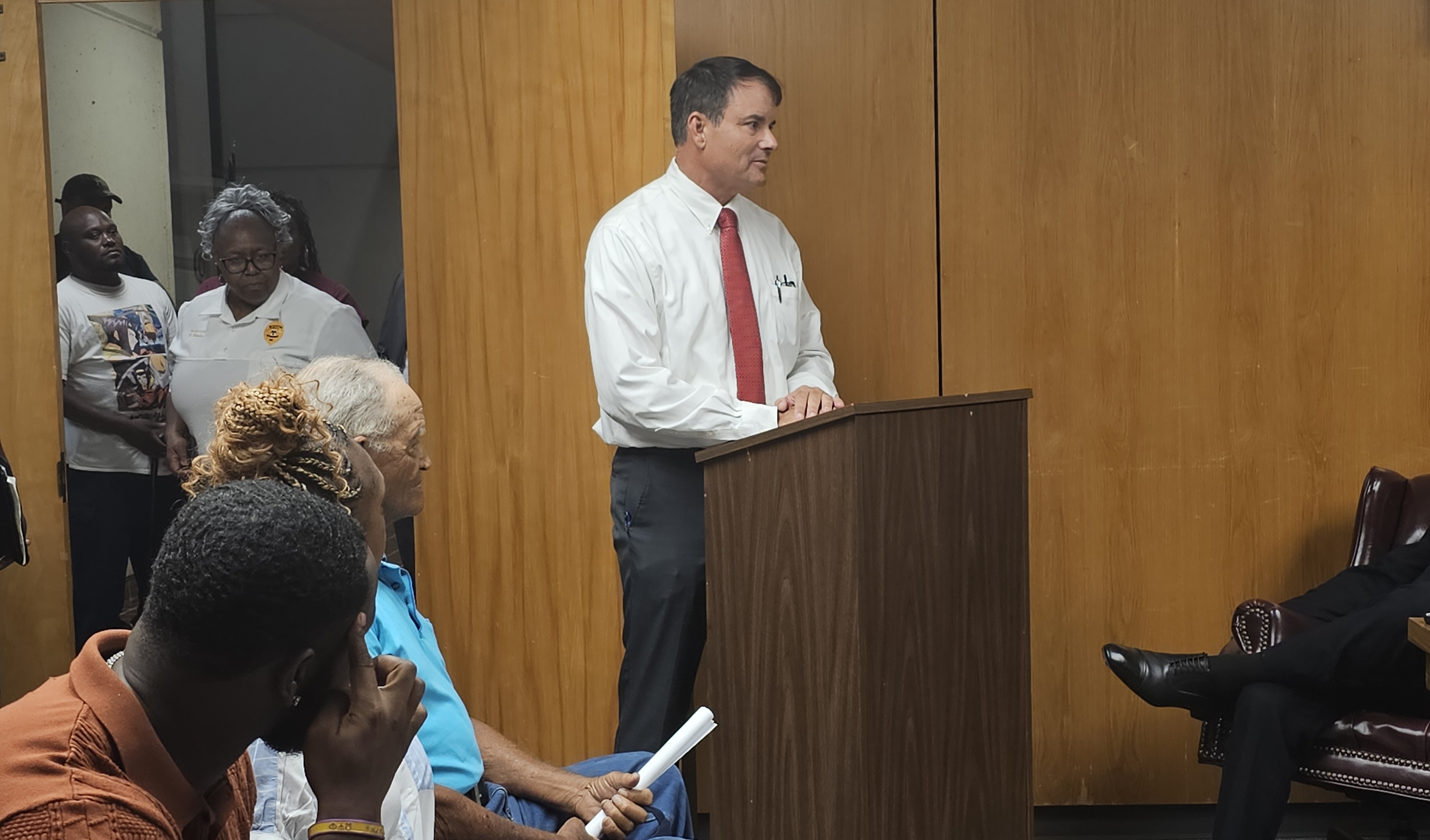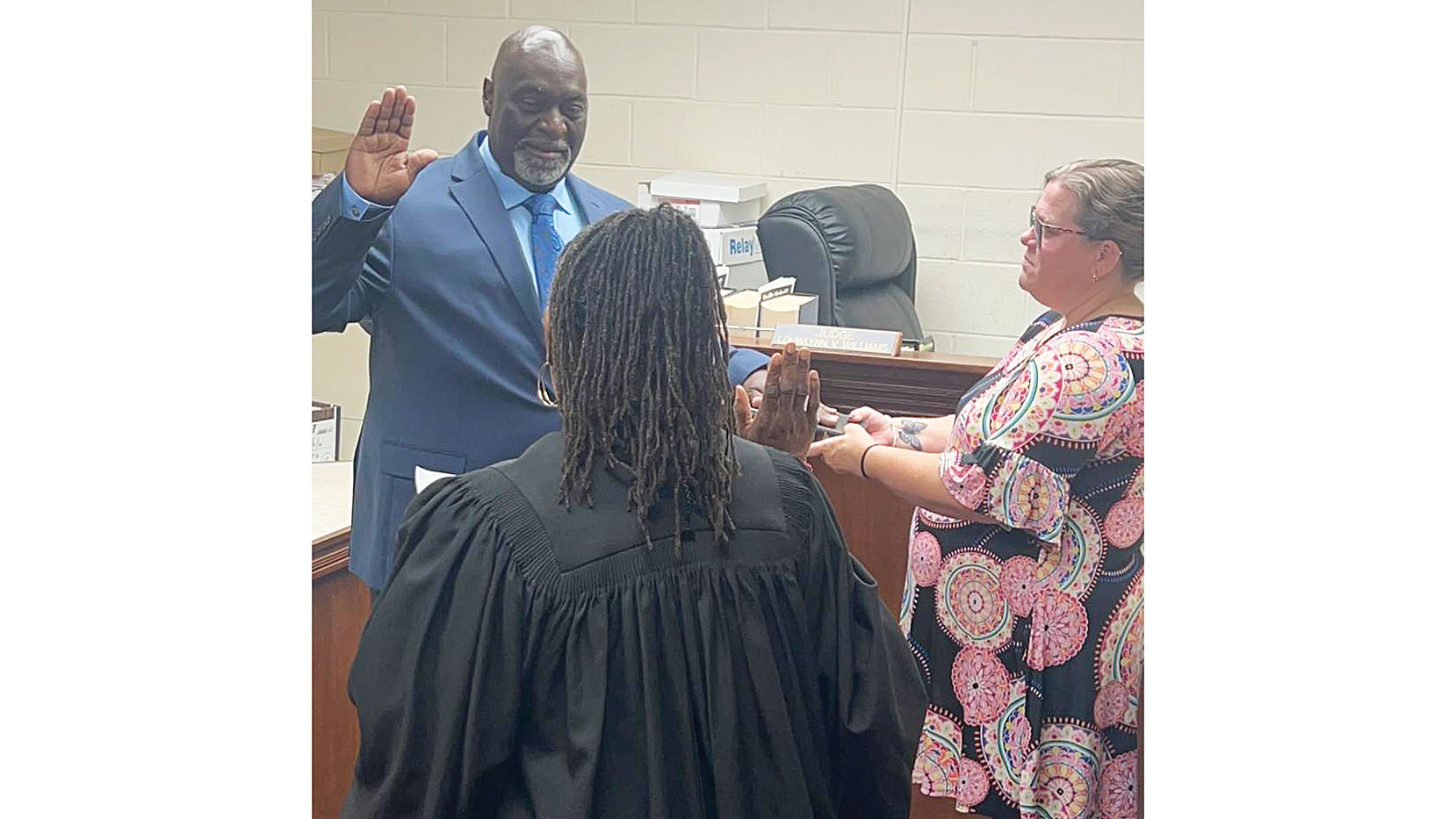Your son, John Allen: Letters from the trunk
Published 7:34 pm Tuesday, June 6, 2017
This column is the first in a special four-part series.
As a forester, Brookhaven resident Bob Naeger sometimes brushes against history. He’s mapped parts of the Trail of Tears with a state archaeologist and found forgotten cemeteries in the middle of kudzu-covered timber tracts. But last July, when he and his wife, Renee, purchased their own piece of the past — a cabin built in the time of Mississippi land grants — Bob didn’t pay much attention to an antique trunk that came along with the deed. Instead, he was wondering how the massive tree out back by the corn crib had withstood Dutch elm disease.
That changed in December when the nation marked 75 years since the Day of Infamy. Remembering the trunk and a mention of “letters from Pearl Harbor,” Bob unlatched its rusty hinges and set free seven decades of smells clinging to a straw Stetson boater and yellowed copies of the McComb Enterprise-Journal. Digging deeper, he and his family found more treasure beneath a wallpapered panel: 25 letters John Allen Price, a U.S. Army Air Corpsman stationed in Hawaii, wrote to his mother between 1939 and 1941.
While stashes of letters have been found before, the Naegers quickly realized what they held in their hands was powerful.
“I kinda hate to start writing,” the 24-year-old airplane mechanic began his first letter, postmarked Dec. 22, 1939. “It seems as if I should just wait until I come home and tell you everything then.” Price decided better of it, and for two years sent home precisely one letter each month. The accompanying envelopes nearly always had two things in common – a 3-cent, indigo-colored Thomas Jefferson postage stamp in the top corner, and a sprawling return address on the back flap. Changes on those flaps catalog Price’s advancing ranks. His promotion to private first class, Price wrote his mother, equaled a $9 pay increase.
Raises meant a lot to a soldier who routinely sent part of his wages home. Price’s mother, Leona, was widowed at 25 and left to raise five children of her own, plus four belonging to her sister. When Price learned of Leona’s surprise remarriage, he penned congratulations: “I have always thought lots of George Little, but even as good as he is, he is no more than my precious mother deserves.” Three letters later, Price called his new stepfather “Pop.”
The writer’s tenderness toward his mother endeared him to Bob’s daughter, Chloe Naeger, 24, who says the letters show both Allen’s failures and maturities. “One minute I’m thinking how sweet he is, the next I’m rolling my eyes,” she laughs. “I couldn’t help but think he was probably just like guys who serve today.”
I couldn’t help but think Leona was probably just like their mothers. My own stash of Marine mail is postmarked Parris Island and beyond, and I could imagine Leona cradling those then-white pages. What did she think of the tonsillectomy that kept her son in the station hospital (and away from KP duty) for nine days? Did she attempt to answer his question about why people “have to war and scrap all the time?”
Price’s accidental autobiography came with chapters about a mumps quarantine that kept his squadron from the barbershop, and a new spark plug’s ability to make a P-40 pursuit plane “run like a sewing machine.” He described going to the show to see “Northwest Passage” and deems it “very good.” A young woman’s name kept popping up on the brittle pages, too: “Mrs. L writes that Juanita is learning housekeeping for a purpose and we better not pull anything on her. Fine chance of that when I’m 4,000 miles away.”
On May 7, 1940, Price wrote (via a misspelling) that he went to Waikiki and took a picture of himself for Juanita. “I hope she likes it,” he shared, then concluded as he nearly always did:
“Your son, John Allen.”
Wesson resident Kim Henderson is a freelance writer. Contact her at kimhenderson319@gmail.com.





